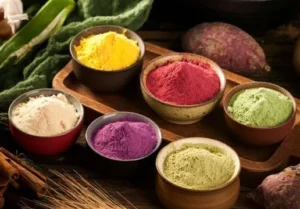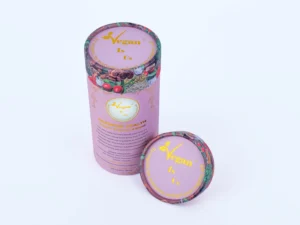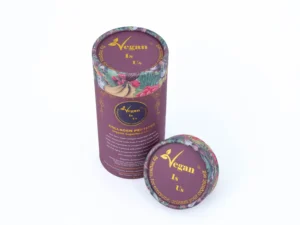Zinc is an essential mineral that plays a pivotal role in maintaining overall health and well-being. For those following a plant-based lifestyle, ensuring adequate zinc intake is crucial for supporting key bodily functions such as immune health, skin repair, cognitive function, and growth development. While zinc is often associated with animal products, numerous plant-based foods provide an excellent source of this vital nutrient, making it easy for vegans and vegetarians to meet their daily requirements. In this comprehensive guide, we will delve into the health benefits of zinc, plant-based zinc sources, the signs of zinc deficiency, and strategies to maximise absorption, ensuring you stay energised and healthy on a plant-based diet.
The Health Benefits of Zinc
Zinc is involved in hundreds of biological processes, making it indispensable for a healthy body. Below are some of the top benefits:
1. Boosts Immune Function
Zinc plays a key role in supporting a robust immune system by activating T-cells, which help the body fight off pathogens and infections. It also reduces inflammation and accelerates wound healing, ensuring your body recovers faster from illness or injury.
2. Promotes Healthy Skin
If you struggle with skin issues, zinc can be a game-changer. It helps regulate oil production and reduces inflammation, making it effective for acne management and skin conditions like eczema or psoriasis. Zinc also supports collagen synthesis, which is critical for wound healing and maintaining healthy, youthful skin.
Pro Tip: Organic Raw Cacao, found in our Collagen Peptides | Organic Superfood Blend, is a plant-based powerhouse that combines zinc with skin-nourishing antioxidants.
3. Enhances Cognitive Function
Zinc contributes to brain health by improving neurotransmitter activity, which enhances focus, memory, and cognitive performance. A lack of zinc can lead to brain fog and impaired mental clarity, making this mineral essential for optimal brain function.
4. Supports Reproductive Health
Zinc is essential for hormone production, making it vital for people of all genders. It supports sperm quality, regulates menstrual cycles, and promotes reproductive wellness.
5. Encourages Growth and Development
For children and teenagers, zinc is critical for cellular growth, repair, and physical development. Zinc deficiency during this life stage can lead to stunted growth and delayed milestones.
6. Improves Digestive Health
Zinc helps maintain a healthy gut lining and supports digestive enzymes, ensuring proper nutrient absorption. This is particularly important for vegans, as gut health is a key component of nutrient uptake.
Top Plant-Based Sources of Zinc
Although zinc is abundant in animal products, there are numerous plant-based foods that vegans can incorporate to meet their daily zinc needs. Here are the best vegan-friendly options:
1. Pumpkin Seeds
Pumpkin seeds are one of the richest plant-based sources of zinc. A small handful can provide a significant portion of your daily requirement. They are versatile, making a perfect snack or addition to salads, smoothies, or oatmeal.
Pumpkin seeds are also a key ingredient in our Aphrodisiac | Organic Superfood Blend, which supports sexual health and overall wellness.
2. Chickpeas
Chickpeas are not only packed with zinc but also provide plant-based protein and fibre. Enjoy chickpeas in hummus, curries, or roasted for a delicious snack.
3. Lentils
Lentils are a staple in vegan diets, offering a nutrient-dense source of zinc, iron, and protein. Add them to soups, stews, or salads for a hearty, balanced meal.
4. Hemp Seeds
Hemp seeds are nutritional powerhouses that provide zinc, omega-3 fatty acids, and plant-based protein. Their nutty flavour makes them a great addition to smoothies, cereals, or homemade protein bars.
Hemp protein is a key ingredient in our Protein Peptides | Organic Superfood Blend, designed to enhance energy levels and muscle recovery.
5. Quinoa
Quinoa is a complete protein that also delivers a solid amount of zinc, making it a must-have for vegans. Use quinoa as a base for salads, stir-fries, or grain bowls.
6. Cashews
Cashews are a delicious source of zinc, healthy fats, and magnesium. A small serving can boost energy levels and support heart health.
7. Oats
Start your morning with a hearty bowl of oatmeal to fuel your day with zinc, fibre, and other essential minerals. Pair oats with seeds or nuts to further enhance their nutritional profile.
8. Dark Chocolate
Surprisingly, dark chocolate (with at least 70% cocoa) provides a notable amount of zinc. It also contains antioxidants that support heart health and skin function.
Organic Raw Cacao, featured in our Collagen Peptides | Organic Superfood Blend, delivers zinc alongside a host of skin-loving nutrients.
9. Tofu and Tempeh
These soy-based products are excellent sources of zinc and protein, offering a versatile ingredient for a variety of dishes, including stir-fries, scrambles, and sandwiches.
Enhancing Zinc Absorption on a Plant-Based Diet
While plant-based foods offer zinc, they also contain phytates (found in grains, seeds, and legumes), which can inhibit zinc absorption. Here are some tips to maximise zinc uptake:
- Pair Zinc-Rich Foods with Vitamin C: Foods like citrus fruits, bell peppers, and tomatoes enhance zinc absorption when eaten with zinc-rich meals.
- Opt for Soaked or Sprouted Grains and Legumes: Soaking or sprouting grains, seeds, and legumes reduces phytates, improving zinc bioavailability.
- Avoid Excessive Iron Supplements: High doses of iron can compete with zinc for absorption. Balance is key.
- Include Fermented Foods: Fermented foods like tempeh improve zinc absorption by breaking down phytates naturally.
Signs of Zinc Deficiency
Zinc deficiency can cause a wide range of health issues. If you notice any of the following symptoms, it may be time to assess your zinc intake:
- Weakened Immune System: Frequent infections or slow wound healing.
- Skin Problems: Acne, eczema, or dry, flaky skin.
- Hair Loss: Thinning hair or hair shedding.
- Digestive Issues: Diarrhoea, reduced appetite, or poor nutrient absorption.
- Cognitive Problems: Difficulty concentrating, memory issues, or mental fog.
- Growth Delays: Stunted growth in children and teenagers.
- Loss of Taste or Smell: Reduced sensory functions are common indicators.
Daily Zinc Requirements for Vegans
The recommended daily allowance (RDA) for zinc depends on age, gender, and life stage:
- Adult Men: 11 mg/day
- Adult Women: 8 mg/day
- Pregnant Women: 11 mg/day
- Breastfeeding Women: 12 mg/day
Note: Vegans may need up to 50% more zinc due to lower bioavailability in plant-based foods. This makes it essential to focus on diverse zinc-rich foods and proper preparation methods.
Our Thought
Zinc is an indispensable mineral that supports immunity, skin health, cognitive function, and reproductive wellness. By incorporating plant-based zinc sources like pumpkin seeds, lentils, quinoa, and hemp seeds, you can easily meet your nutritional needs and thrive on a plant-based diet.
Stay proactive about your health by recognising the signs of zinc deficiency and making informed dietary choices. For more tips on plant-based nutrition and to explore our range of nutrient-dense organic superfood blends, visit VeganIsUs. Empower your health journey with the knowledge and products designed to support a vibrant, plant-based lifestyle!







